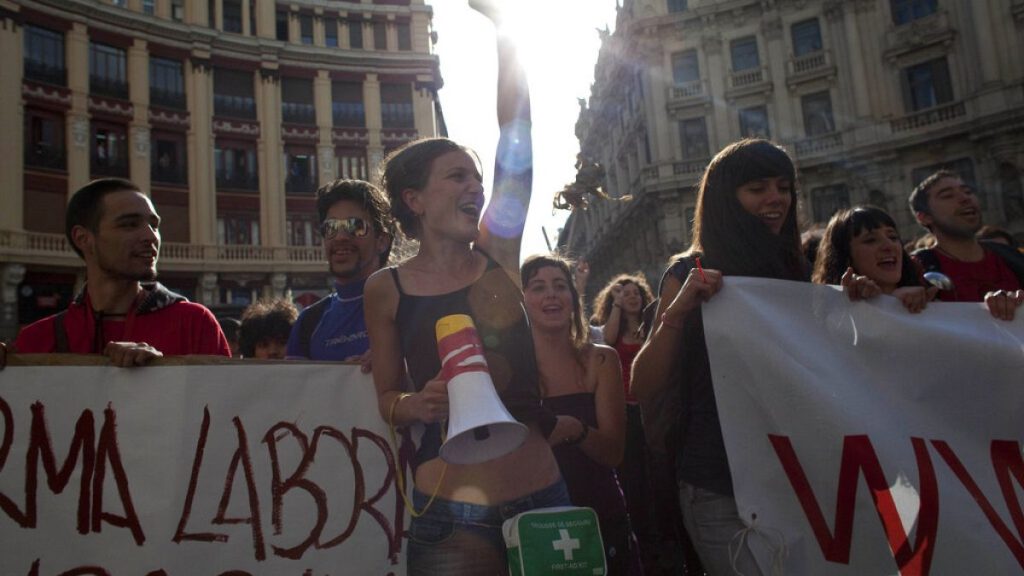The upcoming European elections on June 9 in Spain are highlighting a noticeable gender divide among young voters. Young men and women are viewing politics through different lenses, with young women gravitating towards left-wing or far-left parties while young men are increasingly aligning with the right. This trend is mirrored across Europe, with a Gallup survey in the US showing a growing ideological gap between young male and female voters. This gendered political divide is becoming a significant factor in shaping political landscapes across the continent.
Women under 24 in Spain are increasingly identifying as left-wing or far-left, with many attributing their political awakening to feminist causes and movements. They see the rise of the extreme right as a threat to women’s rights and other marginalized groups. On the other hand, many young men are finding common ground with right-wing parties that they believe better represent traditional values of family and patriotism. This divide is not just limited to Spain, as similar trends are observed in the US and the UK, indicating a broader shift towards gendered politics in Europe.
Alfredo Ramos, a specialist in masculinity studies, notes that gender has become a key element in political conflicts, transcending traditional factors such as income or age. As the left becomes more feminized, far-right parties are appealing to young men who feel their privileges are being challenged. The lack of diverse representations of masculinity in mainstream discourse is driving some young men towards conservative ideologies that reject radical feminism. This shift could have significant implications for EU policy and the future of gender relations in Europe.
The gendered political struggle among young voters is depicted as a zero-sum game by some, where one side must win at the expense of the other. This approach is seen as short-sighted and detrimental to achieving genuine equality between men and women. Young activists like Edurne, Bera, and Haiby are advocating for feminist and socialist causes, focusing on issues such as legalizing abortion across the EU and challenging patriarchal norms that undervalue feminized roles. On the other hand, young men like Diego see voting for the right as a way to challenge the status quo and push for policies that promote true equality between the genders.
The polarization of young voters based on gender could have far-reaching consequences for European politics and society. The failure to address diverse experiences of masculinity and privilege within the discourse of gender equality may further deepen the divide between young men and women. The battle for young voters’ support is intensifying, with far-right parties making specific appeals to men who feel disenfranchised by left-wing gender politics. Balancing the needs and perspectives of both men and women in political decision-making will be crucial in shaping a more inclusive and equitable future for Europe.













